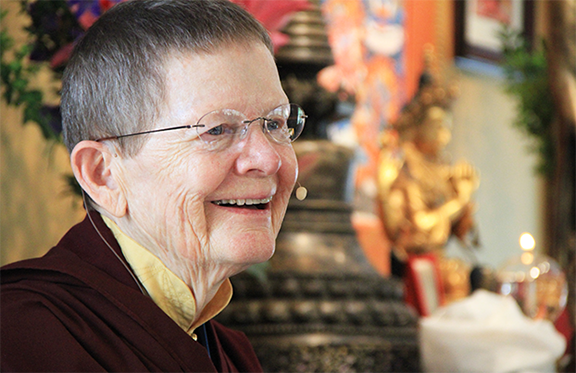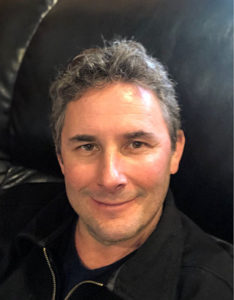
Pema Chödrön
“I became a Buddhist because I hated my husband.” These were the words of Pema Chödrön that hooked me, after accidentally discovering an interview she gave about why she became a Buddhist nun. Until then, I was only vaguely familiar with her. Buddhism represented the ultimate in spirituality, something I struggled mightily to find in myself. While she embodied enlightenment, I was wrapped in dysfunction. What she offered seemed too far out of reach for me.
Truth is, I had one of her books, When Things Fall Apart. My therapist thought it would be helpful and had loaned me her copy, which sat untouched on my shelf for months. I walked by it hundreds of times but never gave it a thought. But then her interview changed my perspective—she spoke about her multiple divorces and her struggles with anger and negativity. She talked about how unmanageable her life had become. It blew my mind. Her life sounded an awful lot like mine.
Perhaps what she had to teach wasn’t out of reach after all. She’d been through the same dysfunction that so many of us struggle with and found her own fulfilling path to enlightenment. I decided to read her book, and I found it both moving and immensely helpful.
Her new book, Welcoming the Unwelcome: Wholehearted Living in a Brokenhearted World, invites us to embrace suffering and strengthen our resilience—to build wholehearted lives out of our broken, tender hearts.
1. “Learning how to fail will help us more than anything else in life.”
2. “Protecting ourselves from pain—our own and that of others—has never worked. Everybody wants to be free from their suffering, but the majority of us go about it in ways that only make things worse.”
3. “When our main goals are to gain comfort and avoid discomfort, we begin to feel disconnected from, and even threatened by, others. We enclose ourselves in a mesh of fear.”
4. “Some people work hard, day and night, in the field of helping others, but their strongest motivation is to stay busy so they can avoid feeling their own pain.”
5. “It’s said that if we want to learn about our past, we should look at our present circumstances, for they are the result of our past actions. If we want to learn about our future, we should look at what we’re doing now.”
6. “Though we can’t predict or control what will come up next or how we will feel about it, we can do something about how we react. We can work on how we relate to whatever comes up.”
7. “Every time we catch ourselves going down the rut of a habitual reaction, we have a chance to interrupt the momentum and discover a whole new direction and depth to our life.”
8. “To the degree that we can open to our own discomfort, we can open to others’ as well, and vice versa. This is so because in reality there’s no difference between our pain and that of others.”
9. “When you become conscious, the first thing you discover is why you stayed unconscious all those years. Being conscious means you really have to feel what you feel, which is frequently very vulnerable and raw.”
10. “The interesting thing is that the more willing you are to step out of your comfort zone, the more comfortable you feel in your life. Situations that used to arouse fear and nausea become easier to relax.”
11. “Accepting something, by the way, isn’t the same as liking it. To accept a feeling that we habitually associate with discomfort doesn’t mean we immediately turn around and start enjoying it. It means being okay with it as part of the texture of human life.”
Pema Chödrön suffered a life full of anger and fear until she found the courage to risk it all for a better life. How many of us play it safe, held back by a fear of the unknown? Protecting myself from pain and suffering has been a priority, and I’ve paid dearly for it. But these quotes are inspiring me to change. If we can be brave enough to step outside our comfort zones, we just might find the lives we’ve been searching for.
 About the Author:
About the Author:
David Baumrind is a paramedic from Long Island, New York and a single parent to an amazing 12-year-old boy. He is an avid paddle boarder and outdoorsman. He is currently traveling his path to self-awareness, and is passionate about sharing his healing journey through his writing. Connect with David on Facebook and Instagram.
(Source: Elephant Journal)

